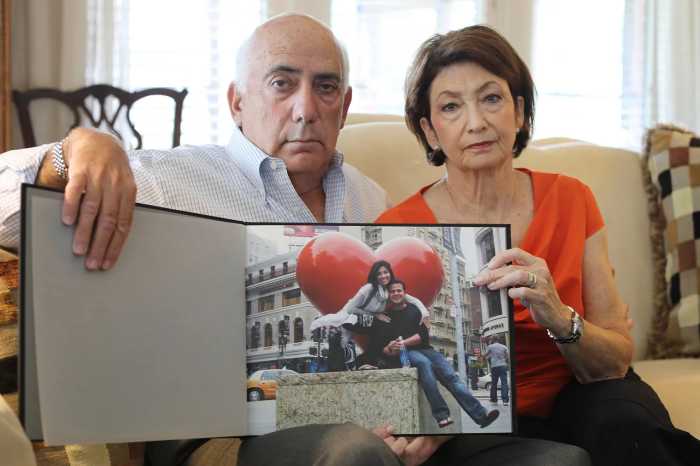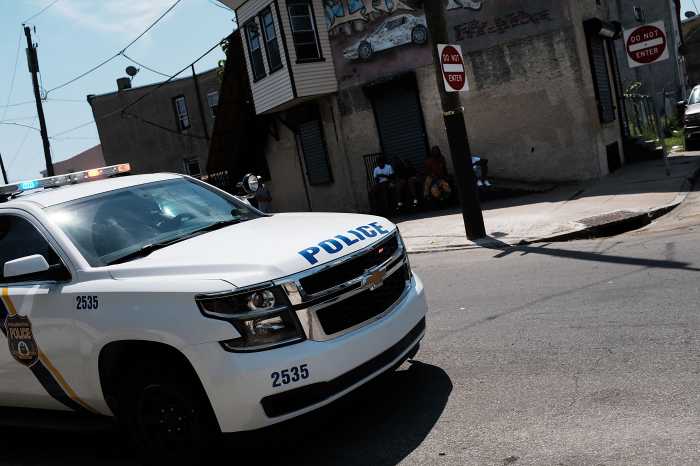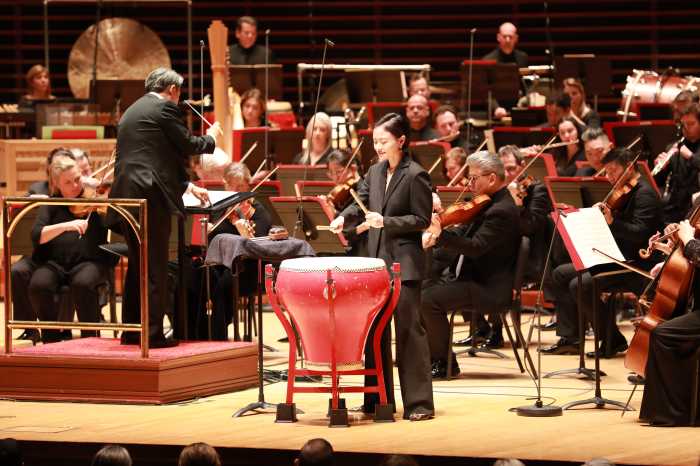In January 2011, Ellen Greenberg was found dead in her Manayunk apartment. She was stabbed 20 times.
More than a decade later, her family is still fighting for answers. At the time, a Philadelphia medical examiner classified the death as a homicide, but later changed it to suicide, even though 27-year-old Greenberg had sustained stab wounds to both the front and back of her body.
Now, filmmaker Nancy Schwartzman is helping to bring new urgency to the case with ‘Death in Apartment 603: What Happened to Ellen Greenberg,’ a powerful new series that questions the suicide ruling of the case and lifts up a family’s relentless pursuit of justice.
Schwartzman recently sat down with Metro to discuss the new docu-series, which premiers Monday, Sept. 29, on Hulu and Disney+

How did you first hear about the case? What made you want to be involved in the documentary?
I grew up right in the area — I’m from Bryn Mawr, I went to Harriton High School and graduated from Shipley, and I used to play tennis at the Arthur Ashe Tennis Center in Manayunk. But, I was no longer in Philly in 2011 when it happened, so, I first heard about the case when some producers approached me about it. I was really startled. Philadelphia is a funny place, right? It’s a big city, but it’s also a bunch of tight-knit communities, and everyone is one person removed from each other, it feels like. What really drew me to [this case] was the power of the story and who Ellen Greenberg was and just the details of the crime itself and the family’s fight for justice. I felt pulled in immediately.
How did you choose who to talk to, and what do you think makes them agree to participate?
Ellen’s people and her relatives feel strongly about letting the world know—Ellen’s parents really partnered with the media. It’s sort of like when every door is closed, where do you turn? It’s an honor to be able to tell the story and to get more attention for it. And with Phil, the incredible doorman and Melissa, the building manager, and the neighbor who participated in this also… It’s so insane to think about this experience that happens to you. In one way, it has nothing to do with you, and in another way, it impacts you for rest of your life. So the concierge doorman, Phil, is such a lovely man. He knew Ellen, he saw her every day.
We don’t think about that, right? He’s not a relative, but he said hello and goodnight to her every day, he saw smiles on her face, he knew her personality. She offered to make him chili, and he just knows her and had a sense of her. And to have her be killed in the building is so shocking for him. So he does it despite his shyness because he wants better for the family. The neighbor does it because he was a witness and he felt like it was his civic duty. He himself is an attorney and says look, we need people like us to step up and say, we saw what happened, or say what we remember.
But getting people to talk, it’s hard. You have to track them down and assure them what your intentions are and if you’re cooperating with the family and let them know that the family is on board with your storytelling.
What is your feeling when people decide not to talk?
It is absolutely my job to reach out to everyone involved or associated. Nobody from Sam [Goldberg’s] family, including close friends, relatives, cousins, wanted to speak with us. We did give everyone an opportunity to voice their side. This also goes for the Philadelphia Police Department and the Medical Examiner’s office; we offered copious opportunities for everyone who is part of this story to participate in the series.
We were able to speak with a colleague of Sam’s who also felt strongly. There’s this whole story around it and he wanted to share his feelings and experience of working adjacent to Sam and also wants to do whatever he can for the family, essentially.
When people don’t respond, that’s absolutely their right. That’s how it goes. But it means a lot, I think, to the community and to the family if people would sit in a chair and speak. It’s an act of service to do that if you’re an elected official or if you’re a city administrator, to answer legitimate questions. So it’s always disappointing when they won’t do that.
What elements of Ellen did you want to make sure came across on screen?
We wanted to present a truthful picture as much as possible. No one had a bad word to say about Ellen. And you don’t want to overly martyr someone, but everyone said, my goodness, she was fun, first of all, super fun. And she was engaging, dynamic and her students loved her. We have these little girls who remember her from when they were in first grade in the documentary. I wanted to be really mindful that we understood her and also that it’s okay to be exactly who you are—which is a 26, 27-year-old woman who wants to get married, who wants to be in love, who loves fashion—she’s a very relatable person.
But at the core, what I was very moved by was what a beautiful family member she was. She took family really seriously. She was really tight with her grandmother, her parents, her cousins, their family. I was also just so impressed by how beautiful and tight-knit their family is and how caring and family-driven they are. And to me, it was super inspiring. So I wanted to make sure we didn’t lose her humanity in the details of what happened to her because she’s much more than what happened on Jan. 26.
What do you hope people take away from the series?
We’re hoping for justice. We’re hoping for an opportunity so that this case will not be a case closed suicide. With all this evidence, including the medical examiner retracting, it’s just so obvious to people 14 years later, with all of the information out, that it’s so unlikely that this was a suicide. So let’s try to do some forensic investigation of what happened to Ellen. It’s not fair that this family has really been put through the ringer.
So we want people to know the story and ask for more from the police department, from the medical examiner’s office, from the district attorney’s office. These are civic bodies that work for the citizens. And this is just such a clear travesty of justice. Plus we want people to know who Ellen was, right? And that stigmatizing mental illness or attempting to use it, it’s a very dangerous precedent. I think, to say, oh, it’s a suicide—that bar should be very high, or a lot of bad things can happen.
On Sept. 3, 2025, a Philadelphia judge criticized city officials for delays in the re-examination of Ellen Greenberg’s death. This interview was recorded before that date.
‘Death in Apartment 603: What Happened to Ellen Greenberg’ will begin streaming Monday, Sept. 29, on Hulu and on Disney+


























